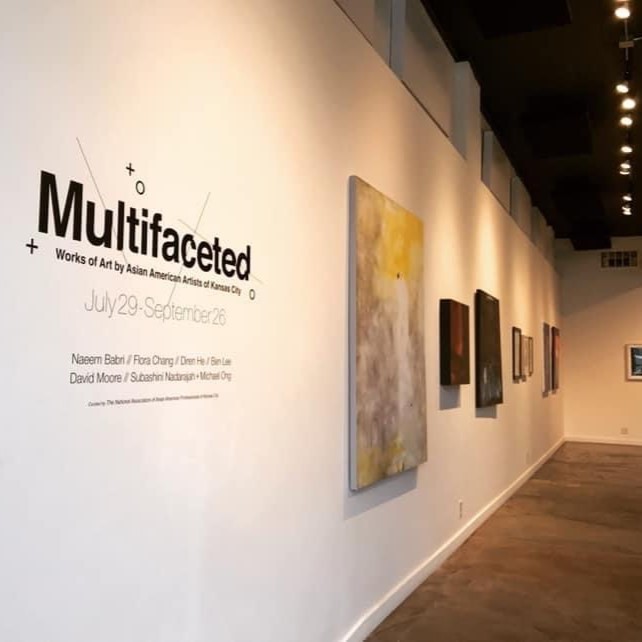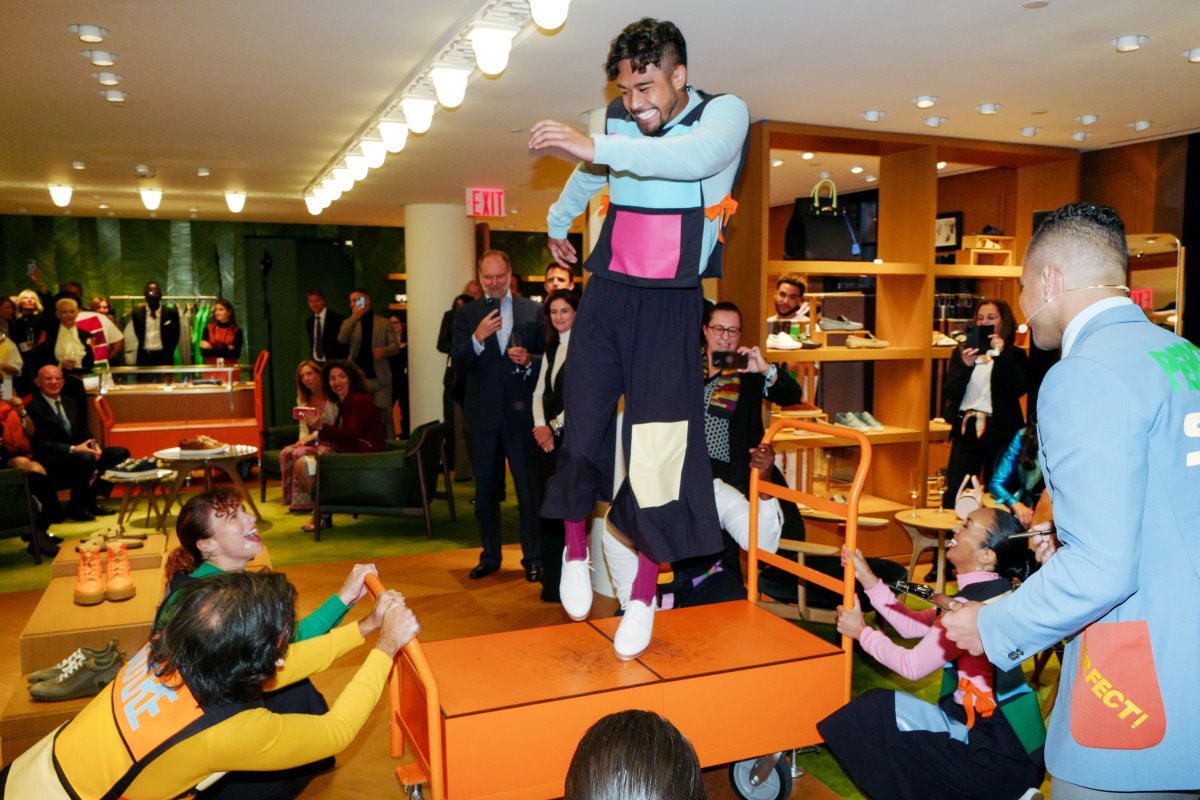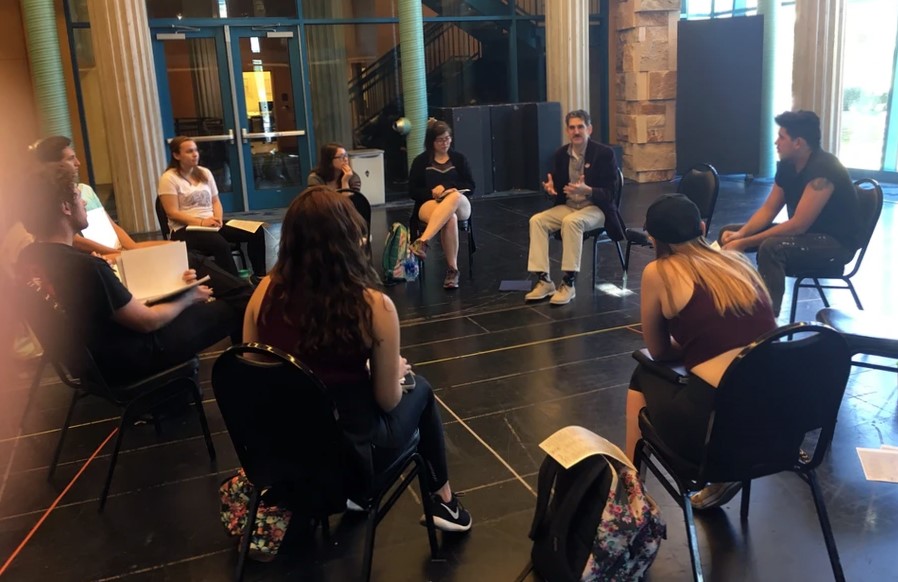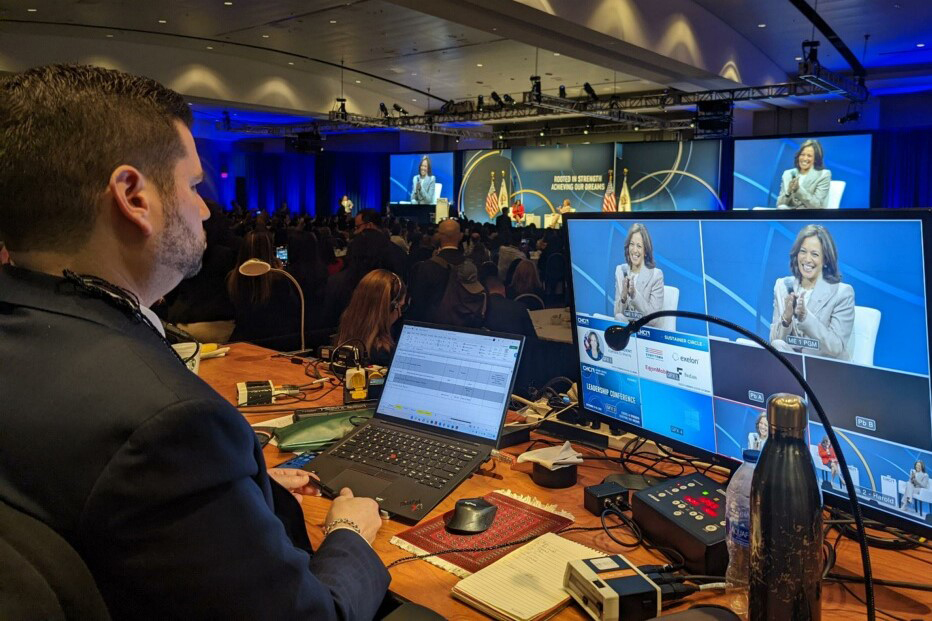Dancing french fries. Spotlit stockrooms. Belting beer cans. For decades, the Business Theatre and Events Agreement meant one thing: corporate promotion. As collective bargaining agreements go, it is admittedly a small one. But over the last several years, the contract has evolved, especially with the creation of the Memorandum of Understanding. BTE, as the agreement is colloquially known, enables Equity members to earn their living in surprising ways —and there is plenty of room to grow. It is an agreement that asks the union and your employers alike to reconsider what live entertainment can be.
The Industrial Days
What used to be called the Industrial Shows Contract dates to the 1950s, when it was created in response to the rising popularity of so-called Industrials – celebrations of industry. Companies would commission original musicals about their businesses and then hire professional artists for private performances, say for employees or investors. Clients ranged from Purina to Whirlpool, from Ford to Coca-Cola.
It is hard to overstate the omnipresence of industrials in their heyday. In 1957, for example, two thousand Equity members (a whopping fifth of the union) worked on industrials, cumulatively earning over one million dollars on the agreement that year – well over $10 million today. While their ubiquity is a thing of the past, they haven't exactly disappeared, either.
Enter "Business Theatre"
Over time, traditional industrials fell out of style, as corporate and popular culture alike changed – stand up comics and bands began to replace the book musical as the entertainment of choice for corporate gatherings. The current iteration of the contract, now called Business Theatre and Events, dates to 2004, an attempt to streamline the rulebook and enable smaller corporations to contract Equity actors and stage managers. As theatre emerged from the COVID shutdown, a new tier was added to accommodate smaller employers. While full-scale works to promote companies are rare, they do still occur on both tiers. They range in message and how closely they hew to traditional theatre, but Equity members who have worked on them had commonalities in experience. A recurring refrain: The pay is great, and the pace is lightning-fast.
Take Most Likely Not To, a BTE project from earlier this year sponsored by the biotechnology company Genentech. Genentech has a program called SMA My Way, a support network for people living with spinal muscular atrophy, a disorder for which Genentech makes a therapy. To spread awareness about living with this disability, Genentech commissioned an original one-hour musical, made a cast recording and staged it for two performances in New York City, streaming it online as a joint contract with Equity and SAG-AFTRA. The cast was a mix of members of the SMA community and Equity actors.
"I wasn't expecting full Production Contract for this, so it was great to know my union has this agreement in place," said Equity member Melvin Tunstall III, who not only performed in the show but wrote music for it. "From the company meals to production values, I count this production as one of my top theatrical moments."

Equity member Cedric Leiba Jr., second from left, in the company of Most Likely Not To… Photo courtesy of Genentech.
Equity members agreed that the production moved really quickly – this meant they had to get off book using a shorter rehearsal schedule, but for some it fit between comfortably other projects, and the consensus was that the pay was really good for the duration of the contract.
"The Business Theatre and Events Agreement felt like a mix between an Off-Broadway and a Cabaret Contact sprinkled with a 29-Hour Reading Contract," said Equity member Cedric Leiba Jr., who performed in the show. "Because there were so many rehearsals and just two performances, it also reminded me of a workshop."
Like any other theatre, BTE work can tell just about any story, but the members on Most Likely Not To were moved that their project raised awareness about living with a disability.
"Representation matters. I am passionate about diversity and inclusion on and off the stage," said Leiba. "Everyone in the company felt like it was an important message. We felt honored to be a part of it. In that short amount of time, we learned so much about the SMA (Spinal Muscular Atrophy) community and their day-to-day experience. Incredibly grateful to have had this opportunity."
Equity members on BTE projects noted that employers were interested specifically in hiring professional theatre artists, seeing an Equity contract as a sign of commitment to creating a high-quality piece of entertainment. That attitude extends to other aspects of production, and Equity members saw large budgets extend past their own salaries.
"I had never been a part of anything on this kind of scale before," said Equity Eastern Chorus Councilor Nikka Graff Lanzarone, who in 2022 performed in and was the Equity deputy for Love Around the Block, a BTE production to open New York's new Hermès flagship store. From employing several dozen Equity members to shutting down Madison Avenue for outdoor rehearsals, the famed fashion brand spared no expense in using live theatre to tell their story. (Lanzarone recalled security supervising when she wore Hermès accessories for the piece.)
Love Around the Block is a reference to the production playing out as a block party, as high-profile guests followed casts from the old Hermès location to the new one, featuring everything from a live band to food trucks along the way. The throughline was a love story situated around the store's opening, featuring songs by composer Dave Malloy. Behind the scenes, it was one of the most complex – and fun – jobs Lanzarone had done in a long time. As with Leiba, it felt like a mix of other contracts she had worked on that emphasized the fast turnaround.
"It's a combination of your commercial audition hat and your summer stock hat," she said, "You've got to learn the thing and go as quickly as possible!"
Emphasis on quickly – there were just a handful of days of rehearsal for one night (the contract paid by the day), where each cast member ran through the show three times. To accommodate all the guests, employers cast four actors in each role so that the show could run for multiple groups simultaneously. A team of Equity stage managers worked between the "layers" to keep everybody in sync.
As deputy, Lanzarone was especially busy with such an unusual production. While she found the workplace encouraging of creativity and highly professional, she also had to remind employers of the Equity contract's rules – the fashion industry, for example, does not tend to schedule regular breaks the way that Equity CBAs require.
"Fashion people and theatre people work really differently," she said, "We would have to explain to them that some of these things you want us to be wearing or doing – how do we make it feasible?"
Both of these projects speak to how BTE has brought industrials into the 21st century. Industrials of the past were largely private affairs, opportunities for companies to celebrate their accomplishments or rally their workers. Nowadays, it has become increasingly popular to use exclusive or immersive experiences to create hype, especially via social media. Sparking public conversation can sometimes go further than traditional advertising, and that is where Equity members can come in.
2019's Skittles Commercial: the Broadway Musical was a parody of advertising (and an explicit nod towards Industrials) in order to promote Skittles, a candy known for its quirky advertisements. The show was performed once in New York's Theater District (yes, on the BTE), and did not air or stream anywhere. By design; it was a private affair, never to be seen again. Yet, parent company Mars, Incorporated heavily promoted the existence of the musical as the marketing campaign itself. In fact, it boasted that the money spent on the project was in lieu of a Super Bowl ad that year.
As companies think more creatively about marketing activations – tie-ins to their brand that serve as advertisements – there may be more Industrial-esque productions on the horizon. In the meantime, BTE has further reach these days than promotional work.
For example, many Equity actors gig in workplace roleplay scenarios, helping professionals practice working with clients. This might mean serving as a model patient for doctors, in legal trainings or acting as employees in corporate management workshops. Often, this work hires workers as independent contractors, on 1099 forms, not eligible for union agreements (usually – more on that, later). However, medical training has increasingly moved onto W2 contracts, which has theoretically made them legitimate organizing targets for Equity. And at times, such as at conferences for the global law firm Kirkland and Ellis, Equity members do such roleplay work on the BTE Agreement.
This means that BTE could be a larger piece in the puzzle that is Equity's new era of organizing. The union is excited to hear from a wider range of live performers and stage managers about work that might be the next new bargaining unit.
"If you're doing regular W2 work with other actors or stage managers, even if you're not in a theater, ask yourself: Are you using the skills that make you an Equity member?," said Equity Director of Organizing and Mobilization Stefanie Frey. "Ask your colleagues if an Equity contract would bring improvements to the workplace. If you think there's interest, contact the organizing department – we're always happy to talk."
Of course, many of these gigs are 1099 and beyond the reach of organizing – but that does not mean you should count them out as a union job! Some members consider one of Equity's best kept secrets to be the BTE MOU.
The MOU Ascending
BTE still only accounts for less than one percent of Equity contract work, just under 800 work weeks nationwide in the 2023-2024 season for a total of just over $700,000 in earnings. But for a handful of members, BTE is more than quirk of their résumé – it is a way of life.
The BTE Agreement is not only an unusual contract because it covers corporate events – its reach is extended by an associated Memorandum of Understanding (MOU). The MOU essentially allows Equity members to identify 1099 gigs that can be described as live performance or live event management and transform them into Equity contracts – with Equity health and pension payments. From attending a party in character as a princess to running a Zoom conference, Equity members have used the MOU in a wide and sometimes surprising variety of ways.
The MOU was originally administered separately according to region, but was nationalized around 2011. Central Regional Board Member and BTE Committee 1st Vice Chair Richard Shavzin thinks that as an elected involved with the creation of the MOU back in 2007, he might have been the first member to work on one in the Central Region, doing attorney training.
"The producers of this work had zero interest in connection with any union whatsoever," he said. "This is the sort of job where you show up, they write you a check and you go away. That was the work we wanted specifically to capture."
The MOU involves little additional work for employers, as the member takes a more active role in managing the contract. For members like Doug Shapiro, learning about the MOU was a welcome surprise, and like many of his peers, he learned about it through word of mouth. He had already been doing business roleplay when now-2nd Vice President Al Bundonis told him, "You know you can get a pension and health week for that." So, in 2015 Shapiro dove in and completely changed how he structured his career.
How It Works
The key to transforming that 1099 into a W2 is through a paymaster, which the Equity glossary defines as "an independent service that a producer may employ to cut and issue paychecks for employees. Paymasters ensure the proper deduction of taxes, union dues and fees, retirement savings withholdings, etc."
Members who think their work qualifies for the MOU should contact the relevant business rep (reaching out before you do the work is crucial!), and ask if it might be eligible.
"'Are you setting agendas? Are you in charge of run of show and run sheets and basically keeping everybody organized?'" Equity member Vi Tran recalls staff asking him about his work managing corporate and non-profit conferences. "I said, 'Yes,' and they said, 'Ok, you're a stage manager – we're good.'"
Once staff has signed off, the member will sign up with a paymaster. For those learning to use the MOU, this is the steepest learning curve.
"I am diagnosed ADHD with dyscalculia- so I have a hard time with tasks involving processing numbers," said Equity Eastern Chorus Councilor Ashley E. Matthews. "Numbers can be intimidating and overwhelming for me – and I was able successfully navigate the system. After the learning curve, it's now not even a second thought. It's easier than you think. "
From there, it should be simple: Tell your employer to make the check out to the paymaster instead of you; That is all they have to do differently on their end. Then, the paymaster processes the check and legally functions as your employer. They take out their fee, as well as union working dues, taxes and health and pension contributions, and they pay you the difference – now on a W2.
"You become your own general manager and company manager," said Equity member Jason A. Quinn, who often meets with MOU-curious members to walk them through the process. "We as members need to give ourselves a little more of the onus of business… [The MOU] has informed and colored how I receive arguments from employers during negotiations."
The MOU does chisel off some money from paychecks, and the accepted wisdom is that a gig should pay over $600 before it is worth putting on Equity contract. Instead, its major benefit is just that – benefits. In particular, for some members, the MOU has allowed them to reach the number of work weeks required to qualify for healthcare.
"Health weeks are the main thing for me," said Tran. As a stage performer, director, singer-songwriter and for many years venue operator, he was working constantly, but seldom in ways that let him hit the threshold for Equity insurance. "I think it's an awesome, awesome tool, and it gives us greater flexibility since so very few of us make an absolutely full-time living as an actor or an absolutely full-time living as a stage manager. For those of us who have kind of cobbled together a pie of a performing arts life, it gives us a little more flexibility about how to lean into the skills that we have while also being able to engage with our union and the resources available to us through our union."
Because of the cut to the paycheck, members do not tend to use the MOU if they have no other Equity work in a given year, but if they are just a few weeks shy of an insurance threshold, putting gigs on the MOU is often worth it.
"I had top tier insurance all through the pandemic because of the contract, because everything went online," said Shapiro, who once even worked three work weeks in one week on the MOU because of overlapping corporate gigs.
Quinn had a similar COVID experience as a stage manager. He had been using the MOU since the very beginning, but during the pandemic shutdown he was one of many stage managers who learned to run virtual events on the MOU, which allowed him to keep his insurance.
"We were the lucky few who had this income at all in an industry that thrives on human connection," he said, "and the resources to translate that into something that can keep our health coverage."
The benefits of the MOU extend past health insurance, as crucial as that is. Quinn noted that when he started using the MOU, he thought little of the pension contributions he was making, which has changed for him over time.
"From this side of the last ten years, being able to add that little bit into my pension is not a bad thing either," said Quinn.
Equity members also agree once you have worked on the MOU, the second time is much easier, because you already have the setup with the paymaster. Another perk is that multiple contracts with one paymaster can be lumped together come tax season.
Take a Walk Through
the MOU
In 2023, the Business Theatre and Events Committee hosted a webinar on how to use the MOU, and you can find it on the member portal.
Tran summed it up:
"Are you willing to get less take-home pay, get some dues paid, get some taxes paid, get a health week out of it? Use the MOU, it's great!"
All Sorts of Work
The MOU asks members to reconsider how they use their artistic skills outside of the theatre and drives them to advocate for themselves.
"There is a certain level of encouraging self-motivation [necessary] to leverage the contract," said Tran. "In its description, it describes all of the possible ways it can be used, but it's on the individual to really take a moment and ask, 'What are all the different gigs I do? Can this fit in that container?'"
Shapiro loves exploring that container. For example, he officiates weddings, which he realized were their own sort of sacred performance.
"You're doing your actor research when you talk with the couple," he explained. "You're putting together your own script, and you read that script in front of the congregation… Also, you're the host… and there's a certain way you need to carry yourself because you're an entity in service to this couple and all of their loved ones."
So, he decided to ask if he could put it on the MOU.
"I called up and Equity said, 'Why not?'" he recalled.
"Ultimately, we framed it as a performance, where he needed to prepare, know his lines, and play a 'character,' just not in a theatrical setting," explained Cristelle Bandzes, the business representative Shapiro contracted.
The same way members on industrials can find them thrilling and creatively fulfilling, MOU users often love their corporate side-hustles.
"My job as an actor is to go through with [the client] whatever they need to go through, in a visceral way – there's nothing purer," said Shapiro. "In that moment I've made a better executive, I've made a better doctor. I see that 'aha' moment where they light up!"
"I like the feeling of, 'I made this into union work,'" he added. "Because it's on Equity contract, it makes me feel like, 'I'm an actor doing this.'"


MOU gigs can look like just about anything – art exhibits, corporate conferences, music festivals – as demonstrated by the work of Equity members Vi Tran (left) and Jason A. Quinn (right).
Equity advocates of the MOU point out that corporate promotion work like industrials of old have not disappeared, but have evolved into demonstrating products at galas, or delivering speeches at networking events. Matthews works a lot in Las Vegas, for example, and has said that there are gigs available in that vein literally every day.
"Spaces like Las Vegas and Orlando and LA and New York have this kind of industrial event, corporate entertainment ecosystem," she said. "I know folks in Vegas who have retired from Broadway-style shows, but they still do corporate performing in these spaces, and they could be qualifying for health insurance."
Equity members who consider the MOU one of the union's best kept secrets hardly want to keep it that way, and they urge members to give it a try.
"I'm so awe-inspired of the people who use the MOU," said Eastern Principal Councilor and BTE Committee National Chair Maureen Moore, who performed in Industrials back in the day and participated in the MOU's creation. "It's been a long journey, and it's only been recently that it's been picking up in popularity."
When Moore sees members put their gigs on the MOU, she sees it as more than them earning their health weeks. She sees it as a statement of identity.
"Those are strong union members," she said, "and they take pride in being Equity members."
The Future of the BTE
BTE in some ways embodies the diverse forces that drive live entertainment as an industry; the balance of the artistic and the financial. In many cases, the contract emphasizes theatre as a business with direct interaction with the corporate world. With the MOU, Equity members take on a business-forward role, navigate their careers on their own terms, and users think creatively about how they even conceive of their own art.
Advocates of the BTE see it as an agreement full of potential – potential for more members to get their health weeks on the MOU, potential to organize their model patient workplaces, potential to connect with corporations about mounting Equity productions.
"The proof is in past successes," said Moore. "We have to be active in promoting ourselves."
"I'm a union member," said Tran. "I have access to health insurance, I have access to pension, but only when I do professional theatre, when so many of the other things I do can be professional theatre if I think outside the box and engage my union."
Banner image: Equity actors perform with members of the spinal muscular atrophy community in Most Likely Not To… Photo courtesy of Genentech.




